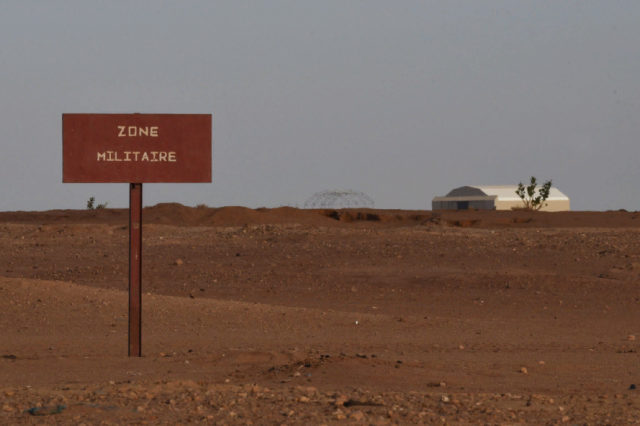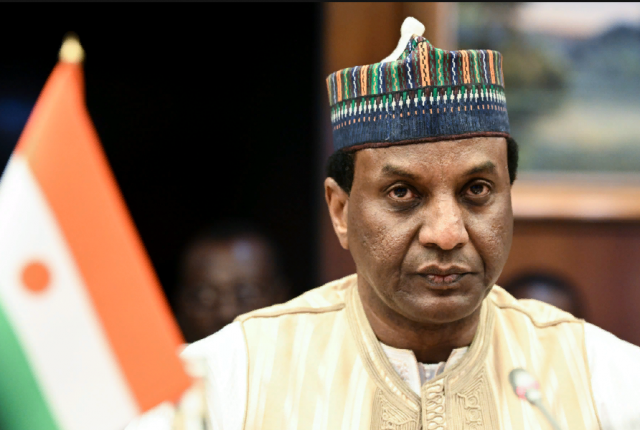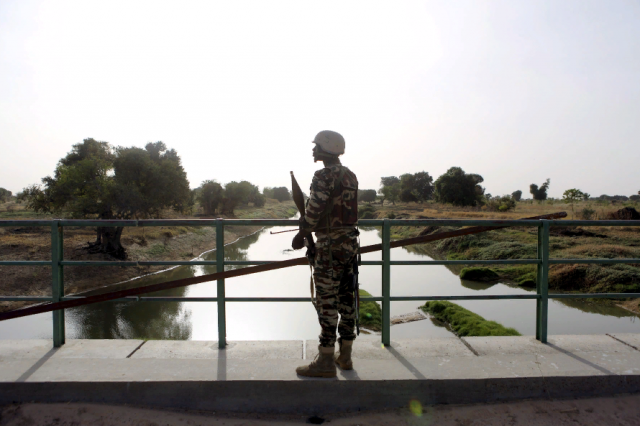Daria Labutina — on the reorientation of Niger to Russia and Iran, and the United States to West Africa
Three months after the last French military left their bases in Niger, the new authorities in Niamey decided to part ways with another long—time partner, the United States. This happened very unexpectedly and contrary to the previous assurances of the same authorities: The termination of the military agreement was announced immediately after the visit of a representative American delegation to Niger. Among the negotiators were U.S. Assistant Secretary of State for African Affairs Molly Fee, who had previously spoken negatively about the visit of the Prime Minister of Niger to Russia and Iran, as well as the head of the African Command of the U.S. Armed Forces, General Michael Langley.
An unfair agreement
As Colonel Amadou Abdraman, a representative of the Government of Niger, later explained, the reason for the termination of the military agreement with the United States lies in the fact that "it was imposed" on Niamey. "The agreement with the United States is not only deeply unfair in its essence, but also does not meet the aspirations and interests of the people of Niger, it was imposed on us. The National Council for the Salvation of the Motherland (the ruling party in Niger) has ruled that the American presence in Niger is illegal and violates all constitutional and democratic rules," he said.
In the north of Niger, Agadez is home to one of the largest and most technologically advanced military bases in the region. According to various sources, at least $110 million was spent on its construction, there are about 1.1 thousand American soldiers there. The base is capable of receiving heavy military transport aircraft. In addition, drone tests are being conducted there.
 |
| The military base in Agadez. |
| Source: © Mehdi Chebil / Hans Lucas via Reuters Connect |
Abdraman also said that American officials violated diplomatic protocol and did not inform Niamey about the composition of the delegation, the date of its arrival and the agenda. He added that the negotiators raised the issue of the military's change of power in Niger and military cooperation between the two countries. Obviously, the issue of Niger's military cooperation with Russia and Iran was also raised in an ultimatum, which cannot but cause concern to the United States.
Now more than a thousand American military personnel are awaiting a decision on their fate, and Niamey is waiting for Washington to withdraw its troops. Their French colleagues, for example, withdrew contingents through neighboring Chad, and from there to Benin and by sea to France. The Niger authorities have made it clear that the termination of the agreement takes effect immediately and American soldiers can no longer stay in the country and conduct exercises there.
Nevertheless, the United States is talking about conflicting signals from Africa and is preparing plans for both the withdrawal of troops and the continued presence, said General Charles Brown, chairman of the Joint Chiefs of Staff of the US Armed Forces. And the Assistant Secretary of Defense for International Security Affairs, Celest Wallander, said that the authorities of Niger have not yet demanded that American forces leave their country's territory. According to The Washington Post, citing American officials, the United States is trying to find out during closed-door negotiations whether they can maintain any kind of security presence in the country. American officials also call the situation "dynamic," noting that both sides are exploring conditions under which the American military presence can continue. A reduction in the number of American military personnel is considered as an option.
Changing the vector
Interestingly, at the end of December, Niger's Prime Minister Ali Mahaman Lamine Zane spoke online at the Center for Strategic and International Studies in Washington, and it was not at all about breaking off the military partnership with the United States, on the contrary, he called the United States a "long-standing partner" and said that "the American military will always be welcome in Niger," however At the same time, he stressed that they must clearly define their goals in order to stay in the country.
A month later, he visited Russia, Iran and Turkey, where he negotiated military and economic cooperation. And even earlier, on December 4, the deputy head of the Russian Defense Ministry, Colonel General Yunus-Bek Yevkurov, visited Niger, then a memorandum of understanding was signed aimed at strengthening cooperation in the field of defense.
 |
| Prime Minister, Minister of Economy and Finance of Niger Ali Lamine Zane during a visit to the Russian Federation, January 2024. |
| Source: © Sergey Pyatakov/ POOL/ TASS |
Perhaps that's when the vector began to change. After all, back in August, when the coup took place and the patriotic Abdurakhman Tchiani came to power instead of the pro-Western protege Mohamed Bazum, who began a course of abandoning partnership with France, there was no question of renouncing cooperation with the United States. On the contrary, many experts expressed the view that the United States is strengthening in Africa, replacing the French and competing with them. Thus, uranium supplies from Niger to Europe, despite official statements about their termination, according to some reports, continued through the United States.
This point of view is also supported by the fact that it was US Deputy Secretary of State Victoria Nuland who was the first Western politician to visit Niger to try to rescue the ex-president. Of course, the Americans expected to return their protege, but when it became clear that there was no way back, they showed flexibility and entered into negotiations with the new authorities. At their direction, according to my sources, the intervention of the Economic Community of West African Countries was not implemented.
A curious statement was made by member of the House of Representatives Matt Getz (Republican from Florida) at a hearing in the Armed Forces Committee of the lower house of the US Congress devoted to reviewing the situation in Africa and the Middle East. "If you look at Chad, Burkina Faso, Mali, Mauritania, Niger, in many of these countries, the leaders of the coups were those whom we trained," he said, recalling that in March 2023, US Secretary of State Anthony Blinken called Niger "an example of sustainability, democracy and cooperation," and all A year later, the Niger rebels broke the military agreement with Washington. "Just a year after our authorities called them a model of democracy, they take us by the scruff of the neck and throw us out. Can you call it a failure?" Getz said.
He noted that the United States has invested about $500 million in Niger, but the African country is still turning towards cooperation with Russia. "The Russians are the most preferred military partner. And we train coup leaders," he stressed.
Congressman Austin Scott (Republican from Georgia) asked why cooperation between Niger and the United States came to naught so quickly and how Russia managed to build a partnership with an African country in the same time frame. "The United States spent hundreds of millions of dollars on this state, it was one of our strongest partners. Now, if I draw the right conclusions based on open sources, we are being forced out of the country, and it is turning to Russia," Scott explained, but, as far as we know, there was no response.
The Iranian trail
Speaking in Washington, Zain said: "Our sovereignty presupposes a free choice of partners among countries that are capable of ensuring peace in the region. And we ask you to show respect for our choice. We decided to open up for cooperation with all countries that are interested in peace." It's hard to say that the United States has shown proper respect.
Pentagon Deputy Press Secretary Sabrina Singh bluntly stated that the American delegation went to Niger precisely to express concern about the development of relations between the African state and Russia and Iran. As The Wall Street Journal later reported, Washington accused the Niger authorities of some kind of secret development of a deal to provide Iran with access to uranium resources. And Iran and uranium are a sore subject for the United States, acting like a red rag on a bull, especially now, in the midst of the confrontation between Hamas and the American proxy Israel.
According to the newspaper, citing unnamed persons (which could well have been a throw-in), the parties signed a preliminary agreement. At the same time, two other sources indicated that the deal had not been completed. Intelligence data from the United States and other Western countries, according to the publication, indicated that as a result of the agreement, Iran could gain access to part of Niger's uranium reserves. However, in my opinion, given that the French Orano group still controls the field in Niger, this is hardly possible.
I suppose it could also be about Iranian drones, which the new leadership of Niger was interested in. And how can drones of two sworn enemies — the United States and Iran - exist in one country?
"The United States has not understood that it is necessary to talk with African countries on equal terms, and not dictate their terms to them. It was extremely reckless on the part of the United States to accuse Niger of preparing for a deal to grant Iran access to uranium deposits, as well as the fact that Niger plans to cooperate with Tehran on UAV issues," the chairman of the Board of the Strategic Agency for the Development of Relations with African Countries (SAROSA) told me Lyubov Demidova.
And according to Nikita Panin, the INF program coordinator and an expert at the HSE Center for African Studies, the decision of the Niger authorities to terminate the military cooperation agreement with Washington is one of the key miscalculations of American diplomacy in Africa in terms of building a model of interaction. "After the coup, the United States relied on showing the military authorities of Niger that their government would not take any radical steps, would continue situational interaction, hence the successes in the first period resulting from Nuland's visit. But at some point, the Americans may have wanted to fill the vacuum of the departed French influence: they began to act aggressively, without regard to the formats of cooperation offered to Niger by new partners and their level - and this is most likely the reason for making such a decision," Panin believes.
What's next?
The American TV channel CNN has already dubbed the incident "a U-turn of a key US ally in West Africa towards Russia" and complained about the unnecessarily harsh actions of the American administration, leading to failure after failure. It turns out that their concern about rapprochement with the Russian Federation has led to an even greater rapprochement: by their actions, the Americans themselves are pushing Africans into the "arms" of new allies.
Now, American officials really have no choice but to express concern that the West is losing its influence, and Russia and Middle Eastern players are strengthening their presence in Niger.
According to Brown, the United States will continue to "consider other countries in West Africa" for establishing military cooperation similar to the one with Niger. Without going into details, the chairman of the Joint Chiefs of Staff of the US Armed Forces also said that he had recently held talks with the heads of the general staffs of a couple of African states on issues related to the fight against terrorism.
This was also announced by the chairman of the Armed Services Committee of the U.S. Senate, Jack Reed. According to him, the United States is currently considering alternative options for deploying troops in Africa. "As for our military, they always try to calculate their actions in advance, and a few months ago we started receiving signals from Niger that it was becoming less comfortable there. The political situation there became more and more complicated, and the African Command of the US Armed Forces very pragmatically began to consider alternative options," he said. "The difficulties that arise are how long it will take to get from this base to the points of conflict or competition. "We also need to establish cooperation with local authorities, this is also an important factor."
He stressed that in addition to the military, the United States should establish a diplomatic presence in Africa. "It is necessary that the appointments of our ambassadors be carried out quickly, without the delays that have been observed recently, and that we can send them to the field as soon as possible, since they can be as effective as any type of armed forces," the senator said.
We can talk about the redeployment to Ghana, Nigeria and Ivory Coast - those remaining ECOWAS members with whom the United States traditionally has strong relations. In January, US Secretary of State Anthony Blinken visited the capitals of the latter two states, where he solemnly announced that the United States would send $45 million to ensure stability in West Africa. At the same time, it is unclear which countries will receive funding. According to Panin, after the coup in Niger, the Americans negotiated with Ghana and Ivory Coast about the potential transfer of their base to them, but in the end they bet on maintaining the base in Niger, and it did not play out.
As a source at the Russian Embassy in Abidjan told me, the United States is increasing its presence in West African countries, replacing the French. However, it seems that the Americans failed to gain a foothold in Niger. But Niger continues military cooperation with Germany.
"The United States has lost an important point of strategic presence in the Sahel region. Now, most likely, they will bow to Nigeria or Ivory Coast," said Chairman of the Board SAROSA Demidova.
If a country expels some foreign military personnel and invites others, it means first of all that those others turned out to be more effective. I think that this rational principle applies in this case.
The opinion of the editorial board may not coincide with the opinion of the author. The use of the material is allowed subject to compliance with the rules of quoting the site tass.ru

